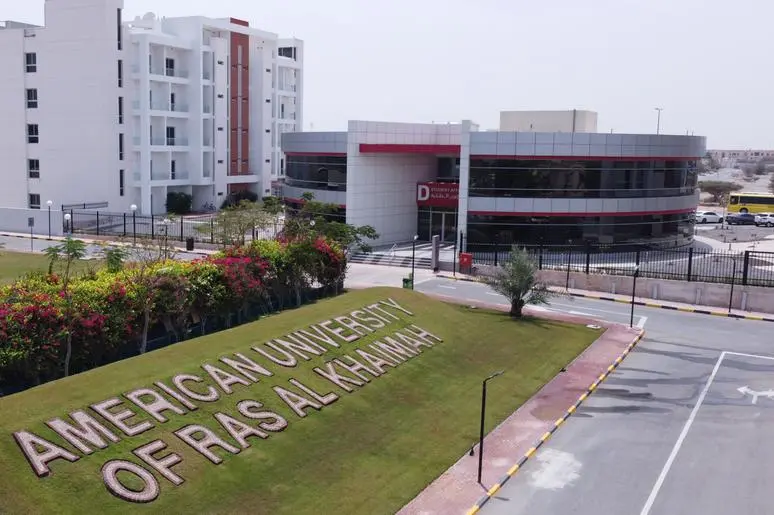PHOTO
RAS AL KHAIMAH, UAE: A pioneering study led by a researcher from the American University of Ras Al Khaimah (AURAK) has concluded that achieving a fundamental shift towards Circular Economy (CE) adoption requires more than just changes in business practices; it demands a profound transformation in the underlying values that drive entrepreneurial behavior.
In the significant study published in the Entrepreneurial Business and Economics Review, Dr. Tahseen Anwer Arshi, Associate Provost for Research and Community Service and Director of Entrepreneurship and Innovation at AURAK, along with Joseph Wallis, Dean of the School of Business, delve into the complex dynamics between entrepreneurial values and CE adoption.
The research takes an innovative approach by examining how specific entrepreneurial values can either facilitate or hinder the adoption of CE strategies.
Circular Economy entails sharing, leasing, reusing, repairing, refurbishing and recycling existing materials and products as long as possible. The United Nations has highlighted the role of circularity in achieving its Sustainable Development Goals (SDGs), while many governments, policymakers and organizations are exploring its potential to address global challenges, such as climate change, biodiversity loss, disruption from material extraction and other environmental issues.
According to Deloitte, circular economy is projected to help reduce emissions by 40%, generate nearly 2 million jobs, and become a $2 to $3 billion market in the coming years.
Prof. Stephen Wilhite, Senior Vice President of Academic Affairs and Student Success and Provost at AURAK, says: “Circular economy is a key driver of sustainability. Its adoption can mitigate many of the ills that are plaguing the world today, including climate change. As a university deeply committed to sustainability goals, AURAK is pleased to pilot this study, which provides fresh insights into how enterprises can integrate circular economy into their operations and growth. We are confident its findings will inspire businesses to make more serious efforts toward adoption of CE.”
Dr. Tahseen Anwer Arshi commented: “This study is groundbreaking because it is one of the first to empirically demonstrate how entrepreneurial value-oriented barriers can derail the diffusion of CE practices within the broader entrepreneurial ecosystem. By highlighting these barriers, the research provides valuable insights into the challenges of CE adoption and offers practical recommendations for enhancing circularity among entrepreneurs. The core finding is that when entrepreneurs recognize the broader impact of their business practices, they may become more inclined to adopt CE strategies, despite their initial self-advancing tendencies, offering a hopeful path forward.”
While previous research has explored the role of self-transcending values—such as altruism, environmental consciousness, and social responsibility—in promoting the circular economy, this study uniquely focuses on the less-explored territory of self-advancing values. These values, which include hedonic (pleasure-seeking) and egoistic (self-centered) tendencies, have the potential to obstruct the adoption and practice of CE within entrepreneurial ventures.
The study's results reveal that entrepreneurial values rooted in hedonism and egoism, combined with similar consumption patterns, tend to reinforce linear economic models. These models focus on a "take, make, dispose" mentality, which runs counter to the principles of circularity that emphasize resource efficiency, waste reduction, and the continual reuse of materials.
The research further emphasizes the critical role of policy instruments and macro-level societal interventions in balancing self-transcendent and self-advancing values. By fostering a cultural and regulatory environment that promotes self-transcendence—values that prioritize the well-being of others and the planet—policymakers can enhance the adoption of CE across the entrepreneurial landscape.
These measures, including targeted education, awareness campaigns, and policy reforms, empower entrepreneurs to align their values with the principles of the circular economy, ultimately contributing to a more sustainable and resilient global economy.
About the American University of Ras Al Khaimah
The American University of Ras Al Khaimah (AURAK), located in the United Arab Emirates, is a non-profit, public university that offers a comprehensive set of accredited and internationally recognized programs. With a focus on holistic education and practical knowledge, AURAK prepares students to become global citizens who are innovators in their respective fields. Through partnerships with top global universities and organizations, AURAK provides students unparalleled opportunities to gain international exposure and experience.




















